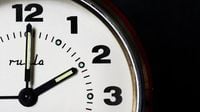The biannual clock change is once again upon us, as Germany and other EU states prepare to switch to Central European Summer Time (CEST) on the weekend of March 29 to March 30, 2025. At 2 a.m. on March 30, clocks will be set forward by one hour, marking the start of summer time, which means that the night will be one hour shorter than usual.
The origins of this practice date back to the oil crisis of the 1970s, when the change was introduced to save energy by making better use of daylight. However, the time shift has become a source of confusion and debate, as many struggle to remember whether to set their clocks forward or back. Mnemonic devices have emerged as popular tools to aid in this annual ritual.
One of the most well-known mnemonics involves garden furniture: in spring, you put your garden chairs out (forward one hour), and in autumn, you bring them back in (back one hour). Another popular memory aid is the 2-3-2 rule, which refers to setting the clock from 2 a.m. to 3 a.m. in March, and then back from 3 a.m. to 2 a.m. in October. For those who enjoy wordplay, the phrase "spring forward, fall back" serves as a reminder of the correct direction for the clock change.
Despite the long-standing tradition, the time change is not without its drawbacks. A survey conducted in 2021 by KKH found that half of the respondents reported negative effects on their sleep and well-being, with women experiencing more issues than men. Sleep researchers note that older individuals and children tend to have more difficulty adjusting to the change than younger adults. To mitigate the effects, experts recommend gradually adjusting sleep schedules in the days leading up to the time change, waking up about ten minutes earlier each day.
Health experts have raised concerns about the potential risks associated with the time change. Studies indicate an increase in cardiovascular events, such as heart attacks and strokes, in the days following the switch to summer time. Additionally, there is a rise in traffic accidents, attributed to tired and inattentive drivers. The sudden disruption of the body's internal clock can lead to a phenomenon akin to "mini-jetlag," causing fatigue and concentration problems.
Furthermore, the psychological impact of the time change cannot be overlooked. The disruption to sleep patterns can exacerbate irritability and mood swings, particularly in individuals who already suffer from sleep disorders or depression. Some studies even suggest a slight uptick in suicide rates in the days following the time change, highlighting the profound effects on mental health.
As the debate continues over the necessity of the time change, the European Union has been considering its abolition since 2018. A survey conducted by the EU Commission revealed that a significant majority—84 percent of 4.6 million participants—supported the elimination of the clock change. In 2019, the European Parliament voted in favor of abolishing the practice, yet no concrete steps have been taken since then. EU member states must now come to a consensus on whether to adopt permanent summer time or revert to standard time.
Doctors and scientists largely advocate for a permanent standard time, arguing that a year-round summer time would result in excessively bright evenings and overly dark mornings during winter months. This could lead to increased difficulty waking up and potential health issues due to prolonged darkness.
The German railway system also faces challenges during the time change. Although few passenger trains operate at night, the lost hour can disrupt scheduling, causing delays for those traveling on night trains. To mitigate this, the railway aims to adjust the timings of freight trains to ensure they depart earlier on the night of the time change.
As the next change to winter time approaches, set for October 26, 2025, the question remains: will the time change be abolished, or will it continue to be a twice-yearly disruption? For now, it appears that the practice will remain in place, with many hoping for a resolution that aligns with public sentiment.
In summary, the biannual clock change is more than just a simple adjustment of time; it has wide-ranging implications for health, productivity, and well-being. As society continues to grapple with the effects of this tradition, it is essential to consider both the historical context and the modern-day realities of life in a world that constantly demands our attention and energy.







